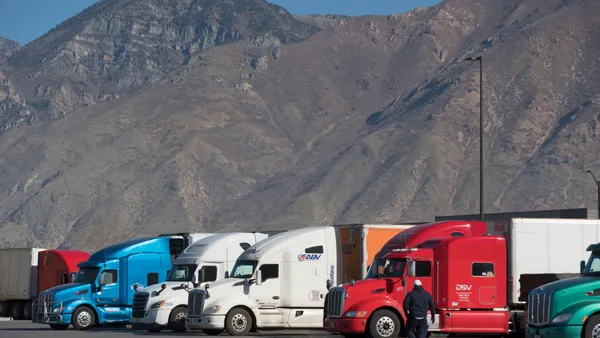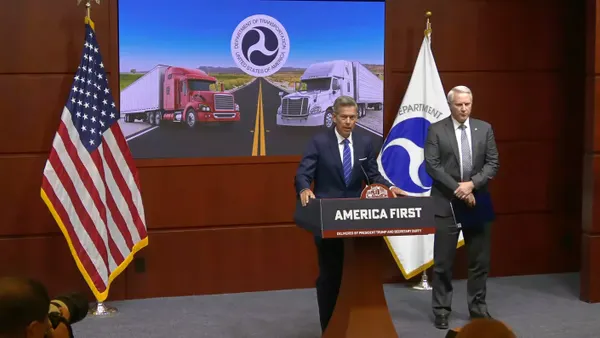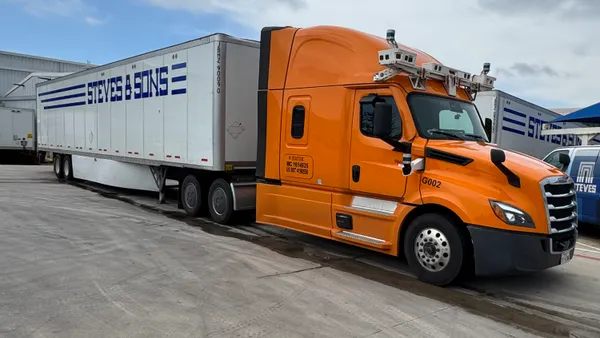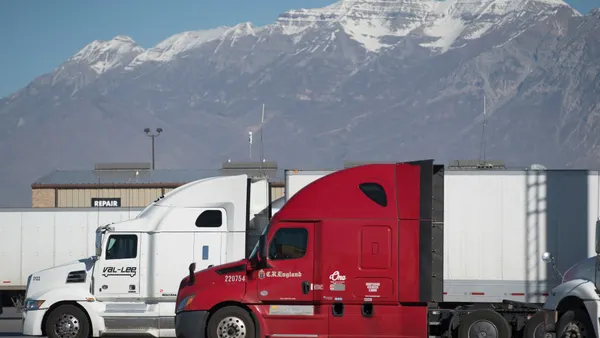Attorney Melissa Wade is advocating not just for her own company’s autonomous technology — but that of other businesses in the industry, too.
The Aurora Innovation senior director of government relations is continuing the push for a federal AV framework as the Autonomous Vehicle Industry Association’s new board chair, she told Trucking Dive in an interview.
“The call for federal framework is going to be a drumbeat that you hear consistently,” Wade said in the video interview last week. “It would be, I think, an incredible signal internationally, here for investors, for the companies for the supply chain, for the customers, the entire ecosystem, would benefit from having a clear vision.”
AVIA represents numerous self-driving technology companies, such as Aurora, Gatik, Kodiak Robotics, Volvo Autonomous Solutions and Waabi Innovation.
While trucking companies may be competing to scale their technology, the U.S. also has competition from abroad, and state-by-state regulations currently mean differences across the country, creating a less-than-ideal environment for businesses seeking to deliver AV’s potential.
Wade has held key legal positions with the U.S. House of Representatives’ Energy and Commerce Committee, where she was involved in subcommittee work on autonomous vehicles.
While a congressional effort passed a House bill in 2017 to bring further uniformity to the industry, a Senate version failed to materialize. But the Department of Transportation still can accomplish nearly all of the changes the bill proposed, Wade said.
“The secret about the Self-Drive Act is DOT can go and do 90, 95% of that bill by itself today if it wanted to,” she said. “There's a handful of things that need to get changed with actual legislative language changes to the Motor Vehicle Safety Act. But most of it, they have a mass amount of discretion.”
Businesses seeking to deploy the equipment at scale have been focusing on Texas, one of many states that paved the way for autonomous vehicles on roads.
Advocates say self-driving vehicles could reduce road fatalities, and federal regulators continue to oversee the technology.
“I think the biggest piece, from my perspective, as I look to 2024,” Wade said, “is continuing to grow the association, advocate for public policy to promote the safe and timely deployment of AVs and then help educate.”












